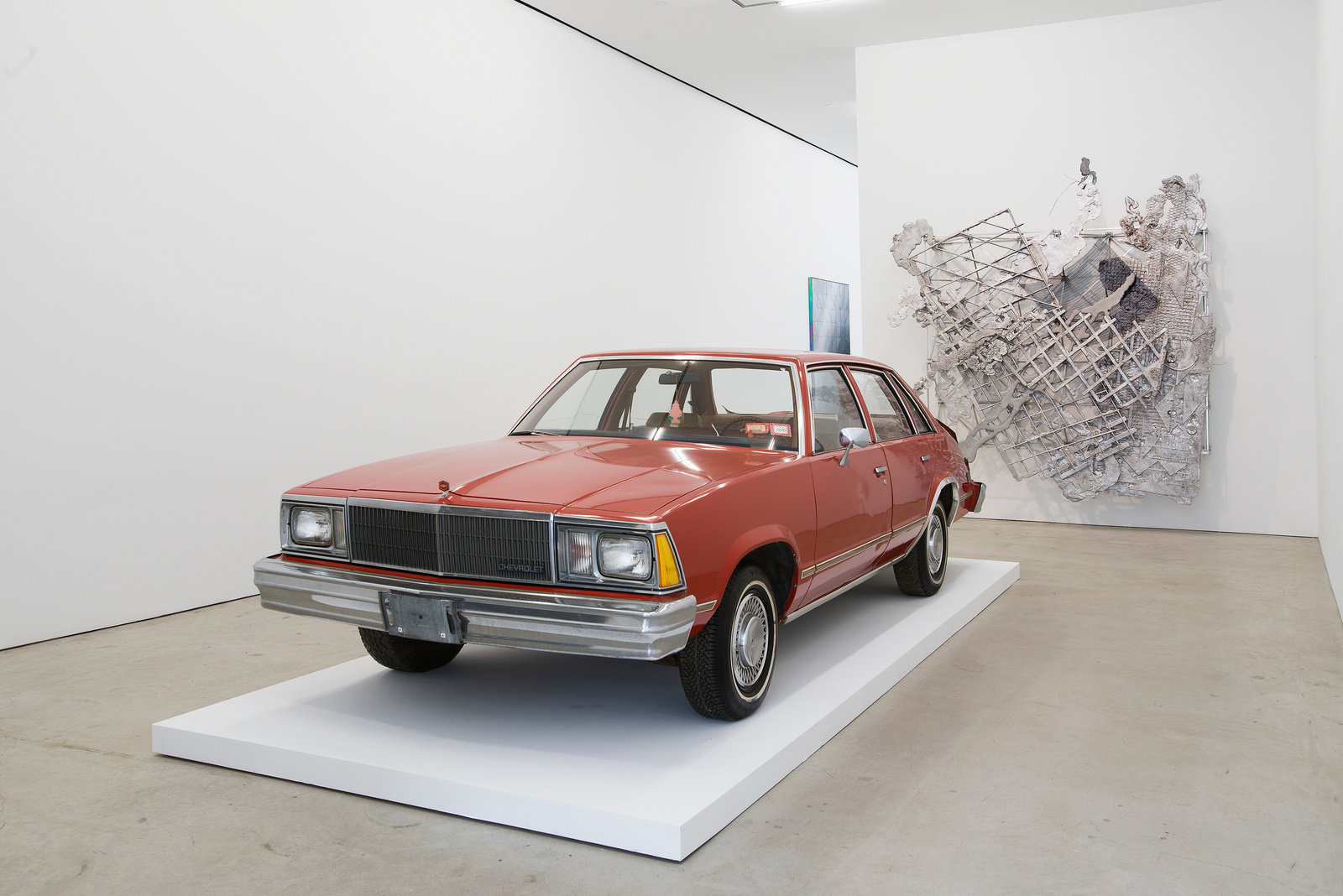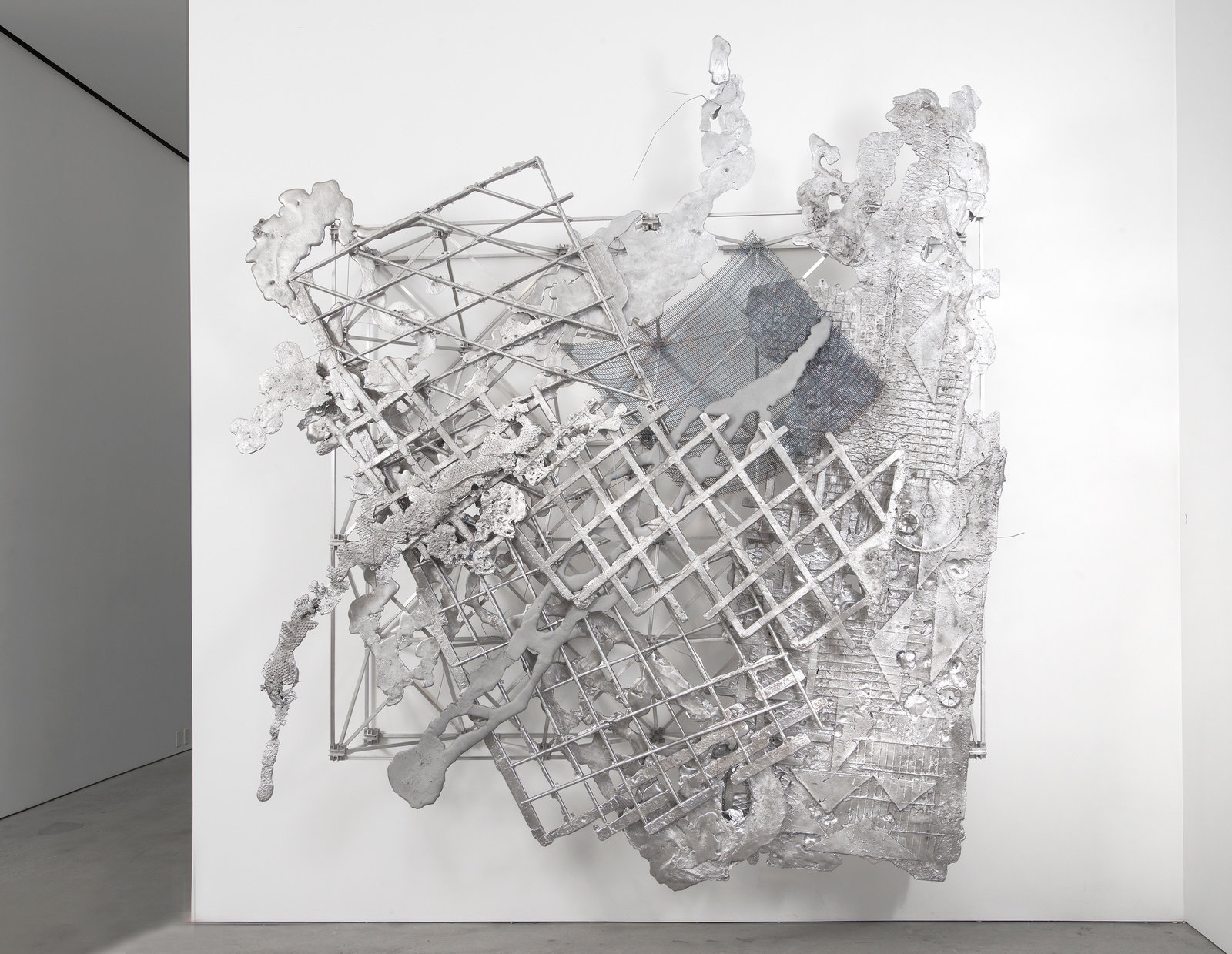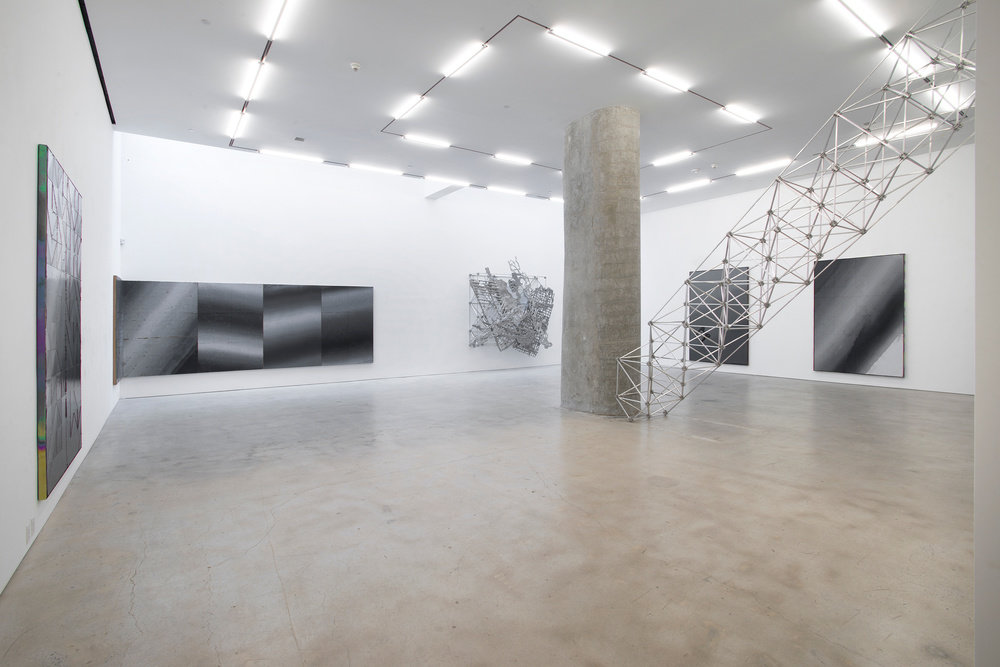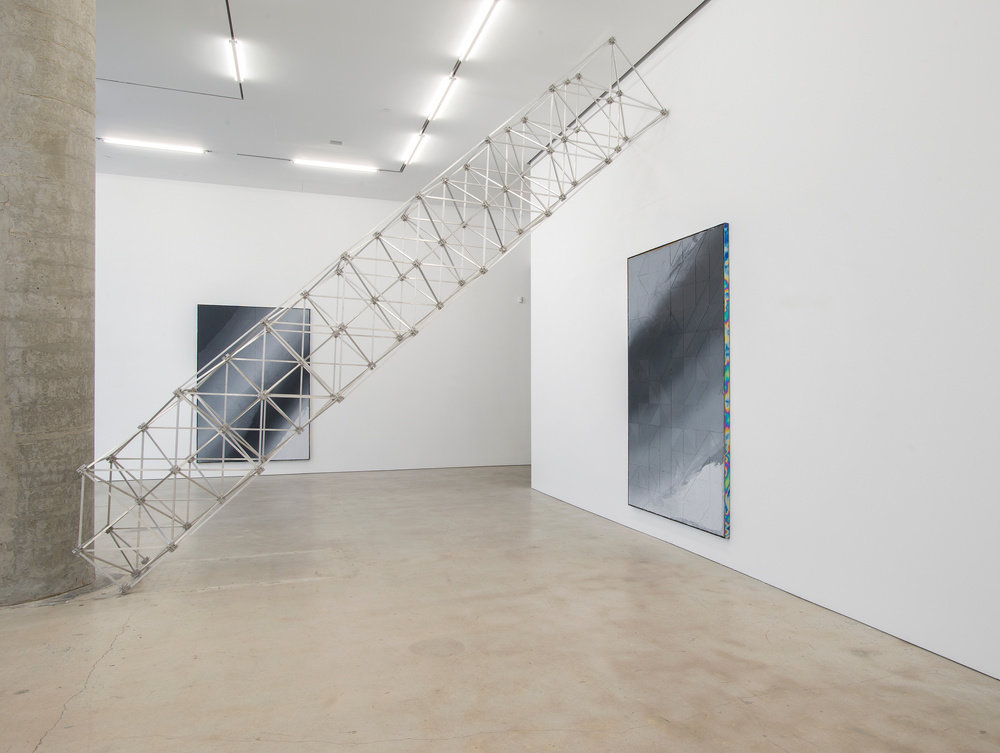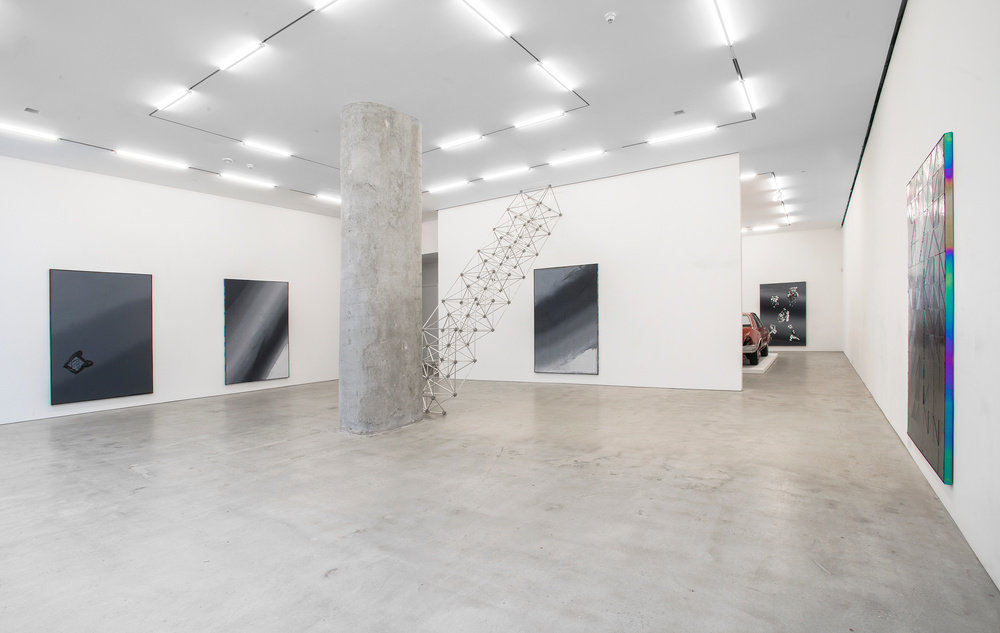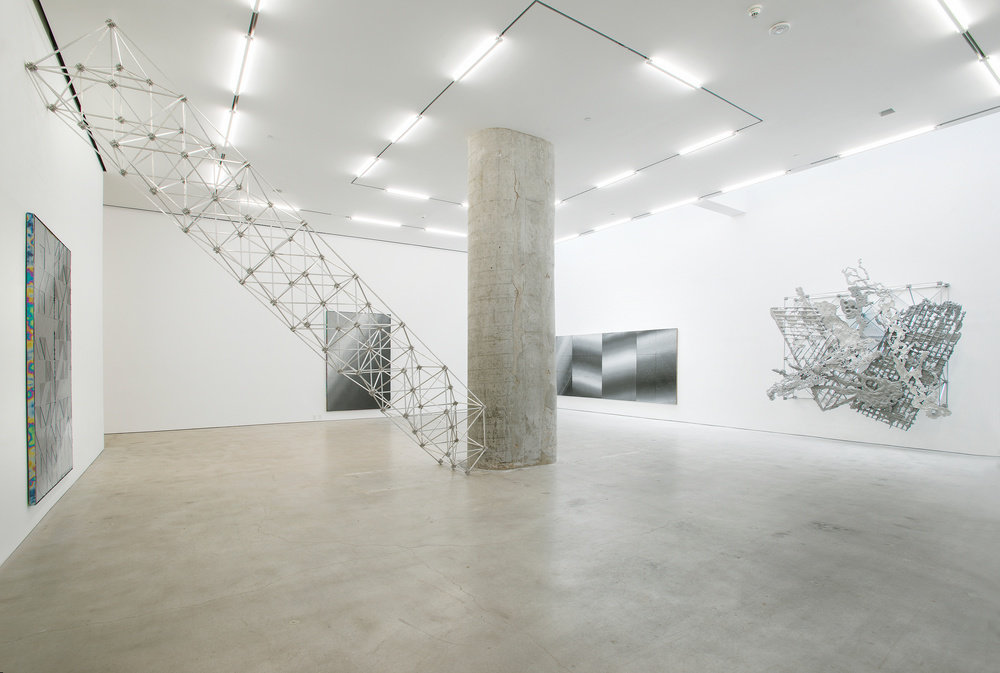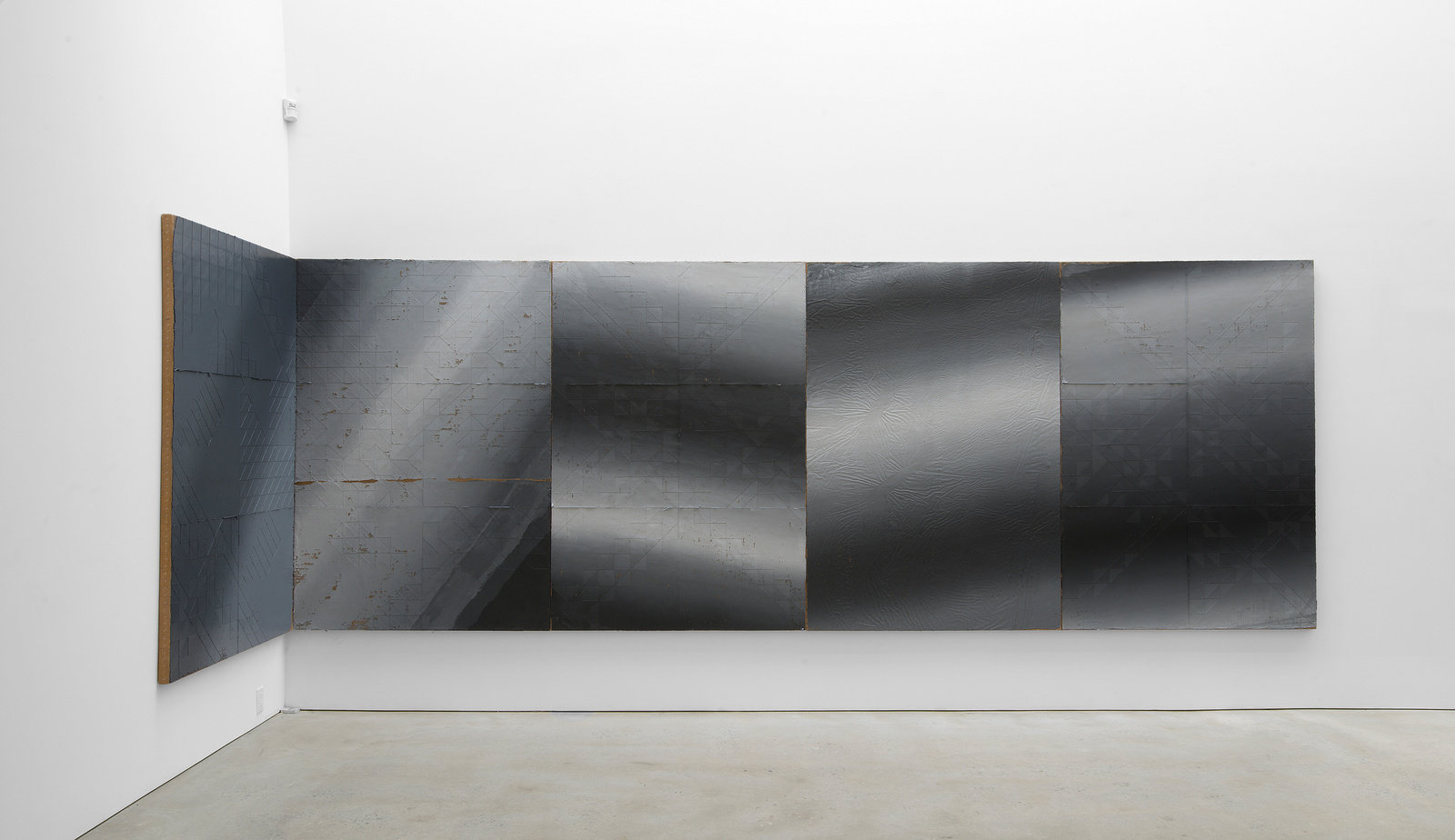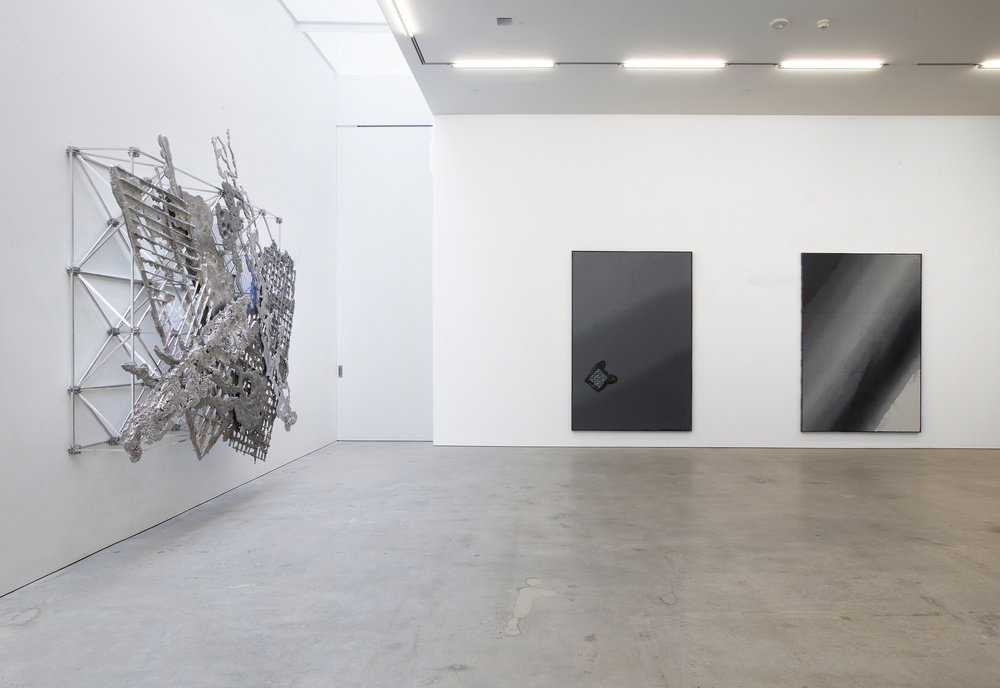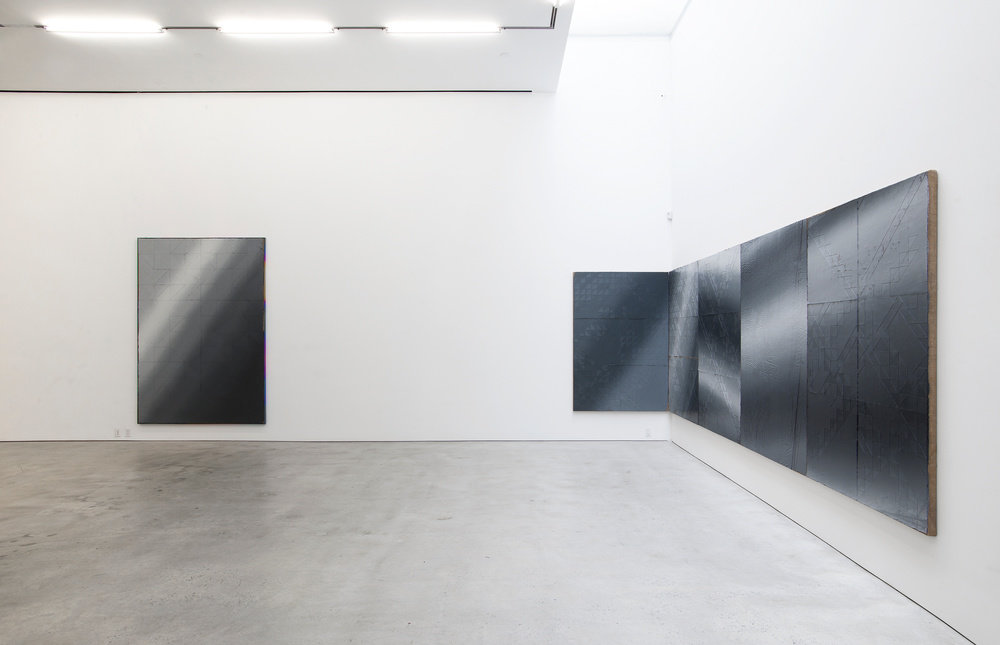Marlborough is pleased to announce Guest Star, a solo exhibition by Los Angeles-based artist Mark Hagen. A constellation of paintings, sculptures, and found objects, this show dramatically expands upon the artist’s practice including a carefully considered investigation of color and figuration amidst his signature abstractions. Alongside these works—as an apt distillation of his ongoing investigation of what he calls “decentralization aesthetics” — Hagen will present a 1980 Chevrolet Malibu that, in 1992 in Peekskill, NY, was struck by a 4.4 billion year old meteorite. Sculpted by “alien hands”, this objects tilts wildly back and forth between the banal and the fantastic.
Central to the exhibition is a group of gradient paintings made exclusively with black and white acrylic exterior house paint that has been blended and forced through sheets of burlap laid face-down on a variety of objects and surfaces (from plastic tiles and garbage bags to silkscreened enlargements of Hagen’s own high school drawings) that act as molds, effectively casting the paint, or becoming embedded elements in the surface of the works themselves. Like the meteorite striking the car, these objects act as contaminants to the paintings, complicating our understanding of them. In a further development, Hagen has introduced full-spectrum color to these grayscale paintings, with artist-made titanium frames have been rainbow-anodized through the mystifying DIY method of conducting electrical current onto their surfaces treated only with Diet Coke and Coke Zero.
Improvised sculptures made from aluminum sourced from melted down car rims are wall-mounted using the artist’s modular “Space Frame” system appropriated from a mid-20th Century architectural design. Called Ramadas, after the Spanish word for the provisional shelters found in the early American Southwest, these works engage the friction between the rational display device of the frames and the mold-less, freeform pours of molten metal that circumvent the traditions of metal casting. Rainbow- anodizing makes another appearance here in the form of treated wire lashing together these compositions.
Though ephemeral, the fullest expression of color arrives in the strategic placement of diffraction grating film decals on the gallery windows, conjuring of the visible light spectrum and illustrating the viewer’s visual perception as limited to these colors. Here sunlight passing through these films infects the exhibition and office spaces with, as the artist puts it, “the irresistible kitsch” of roving rainbows that nonetheless emphasize our subjective specificity in the relentlessness of time.
Works
